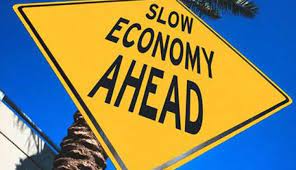
The worsening bottlenecks in global supply chains and increasing rates of inflation resulting from the Russian war in Ukraine prompted the World Bank to slash cut its economic growth prediction for India as well as the whole South Asian region.
With respect to India, the international lender cut down the expected growth rate for the largest economy of the region from 8.7 per cent to 8 per cent for the current fiscal year which ends on March, 2023. The bank also slashed its growth outlook for South Asia, excluding Afghanistan, by an entire percentage point to 6.6 per cent.
The bank further said that incomplete recovery of the labour market from the Covid-19 pandemic hit and the growing pressures of rising inflation will constraint consumption for Indian households.
"High oil and food prices caused by the war in Ukraine will have a strong negative impact on peoples’ real incomes,” Hartwig Schafer, World Bank Vice President for South Asia, said in a statement.
The World Bank upgraded its economic growth projection for Pakistan, the second largest economy of the region, from 3.4 per cent to 4.3 per cent for the current fiscal year ending in June, while keeping the outlook for next year at 4 per cent constant.
Because of the region's reliance on imported energy, rising petroleum prices compelled its countries to refocus their monetary policies on inflation rather than recovering economic growth after nearly two years of epidemic restrictions.
The World Bank cut the Maldives' growth prediction for this year to 7.6% from 11 per cent, citing high fossil fuel imports and a drop in tourism arrivals from Russia and Ukraine.
It upped Sri Lanka's growth prediction for 2022 from 2.1 per cent to 2.4 per cent, but cautioned that the island's future was highly unclear due to fiscal and external imbalances.
As it seeks to use its decreasing foreign exchange reserves to acquire essentials like fuel, Sri Lanka's central bank stated on Tuesday that repaying external debt has become "difficult and impossible."
(Source:www.moneycontrol.com)
With respect to India, the international lender cut down the expected growth rate for the largest economy of the region from 8.7 per cent to 8 per cent for the current fiscal year which ends on March, 2023. The bank also slashed its growth outlook for South Asia, excluding Afghanistan, by an entire percentage point to 6.6 per cent.
The bank further said that incomplete recovery of the labour market from the Covid-19 pandemic hit and the growing pressures of rising inflation will constraint consumption for Indian households.
"High oil and food prices caused by the war in Ukraine will have a strong negative impact on peoples’ real incomes,” Hartwig Schafer, World Bank Vice President for South Asia, said in a statement.
The World Bank upgraded its economic growth projection for Pakistan, the second largest economy of the region, from 3.4 per cent to 4.3 per cent for the current fiscal year ending in June, while keeping the outlook for next year at 4 per cent constant.
Because of the region's reliance on imported energy, rising petroleum prices compelled its countries to refocus their monetary policies on inflation rather than recovering economic growth after nearly two years of epidemic restrictions.
The World Bank cut the Maldives' growth prediction for this year to 7.6% from 11 per cent, citing high fossil fuel imports and a drop in tourism arrivals from Russia and Ukraine.
It upped Sri Lanka's growth prediction for 2022 from 2.1 per cent to 2.4 per cent, but cautioned that the island's future was highly unclear due to fiscal and external imbalances.
As it seeks to use its decreasing foreign exchange reserves to acquire essentials like fuel, Sri Lanka's central bank stated on Tuesday that repaying external debt has become "difficult and impossible."
(Source:www.moneycontrol.com)





